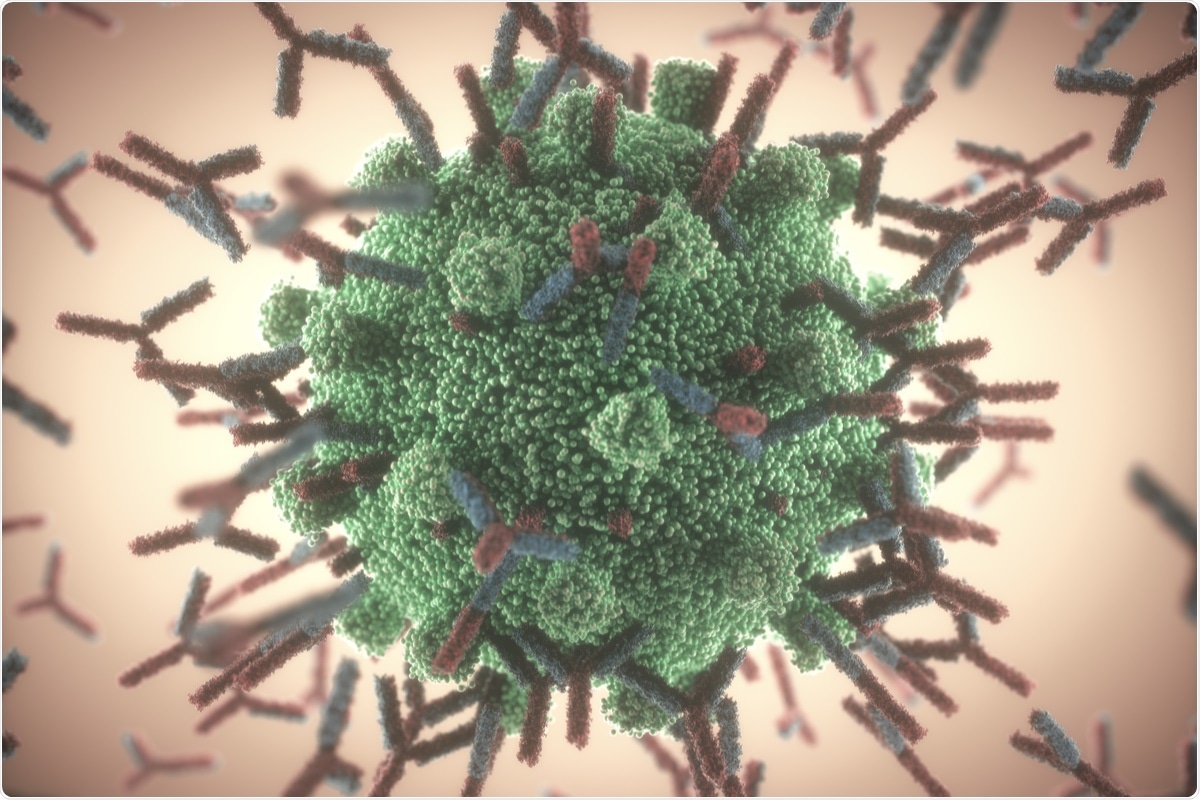Traditionally vaccines are made from inactivated virus particles (VP vaccines). These are generally safe, do not require as extensive cold chains like some modern techniques, and can be stored for years. However, in rare cases, these viruses can become reactivated, and production rates are limited by yields in cell culture and the need for biosafety level 3 production facilities.
 Study: Marked enhancement of neutralizing antibody and IFN-γ T-cell responses by GX-19N DNA booster in mice primed with inactivated vaccine. Image Credit: ktsdesign/ Shutterstock
Study: Marked enhancement of neutralizing antibody and IFN-γ T-cell responses by GX-19N DNA booster in mice primed with inactivated vaccine. Image Credit: ktsdesign/ Shutterstock

 *Important notice: bioRxiv publishes preliminary scientific reports that are not peer-reviewed and, therefore, should not be regarded as conclusive, guide clinical practice/health-related behavior, or treated as established information.
*Important notice: bioRxiv publishes preliminary scientific reports that are not peer-reviewed and, therefore, should not be regarded as conclusive, guide clinical practice/health-related behavior, or treated as established information.
With the rise of severe acute respiratory syndrome coronavirus 2 (SARS-CoV-2) worldwide, a new spotlight has been shined on vaccines, and many of the newly approved vaccines are mRNA vaccines. These provide host cells with the mRNA for the spike protein of SARS-CoV-2 and rely on the host cell machinery to produce it. While these are highly effective, two factors have led some individuals to look elsewhere: the difficulty in transport and storage, and the increasing ability that new variants of the disease show to evade the immunity these vaccines induce.
A preprint version of the study is available on the bioRxiv* server while the article undergoes peer review.
The study
DNA vaccines are similar – plasmids can be used to deliver DNA encoding for the antigens that an immune response is required against. These tend to stimulate a wider immune response than other vaccine options, are reasonably stable, and avoid any potential for infection. Using a DNA vaccine to boost a single dose of a VP vaccine has been shown to improve functionality in both HIV and influenza vaccines significantly. Researchers from VaxiGen have been investigating the potential for a DNA vaccine boost to VP vaccines against coronavirus disease 2019 (COVID-19).
The researchers primed female mice with a VP vaccine, and four weeks later, this was boosted with either another dose of the VP vaccine or GX-19N DNA vaccine. Two weeks following this, spike-specific binding antibodies were evaluated using ELISAs against the RBD and nucleocapsid. The mice that received a mixed dose showed a significantly increased anti-RBD antibody response than those that received two VP doses – a 1.7 fold increase for the homogeneous dose compared to a 181-fold increase for the DNA boost. Similar results were seen in anti-nucleocapsid antibodies, albeit with an even higher increase for the DNA boost.
Next, the scientists examined the responses of neutralizing antibodies to the Wuhan strain as well as two variants of concern (VOCs) – B.1.351 and B.1.617.2 – using the surrogate virus neutralization test. This is comparable to the more popular and more widely known pseudovirus neutralization test.
The VP boost surprisingly showed no increase in neutralizing response compared to a single dose. The researchers suggest that previous results showing contrasting results may be due to the different methods used to evaluate the neutralizing antibody response. The DNA boost once again showed a significant improvement compared to both the initial VP dose and the booster dose, most clearly in the Wuhan strain (76.1 fold increase), but also in the B.1.351 (53.8 fold increase) and B.1.617.2 (76.1 fold increase). Normally, these tests show significantly lower reactivity against variants than WT; however, these results were roughly equivalent.
T-cell responses following the vaccination schemes were evaluated using ELIspot. The second VP dose showed some effectivity, with a 1.6 fold increase in T-cell response, but once again, the DNA boost displayed a much more significant boost, with T-cell response increasing by 38.3 fold. This was also seen in T-cell responses against the nucleocapsid protein.
Conclusion
The authors highlight that their results reveal a highly effective antibody and T cell response against not only wild-type SARS-CoV-2 but also against several variants of concern. Heterologous vaccine boosts have been reported previously, but these focus on mRNA-based vaccines and generally show decreased effectivity against VOCs.
While clinical studies using approved vaccines are examining these possibilities in greater detail, the researchers suggest that using the GX-19N vaccine as a booster could overcome the traditional weaknesses of VP vaccines. As VOCs continue to emerge, many of them show increased ability to evade vaccine-induced immunity. This technique appears to offer enhanced protection against this threat, and it may be worthwhile expanding clinical studies to include this style of the vaccine. This would allow vaccines to be transported into less developed countries much more easily and without the need for expensive and fragile transport and logistic chains – which many experts have advised is required to end the threat of VOCs permanently.

 *Important notice: bioRxiv publishes preliminary scientific reports that are not peer-reviewed and, therefore, should not be regarded as conclusive, guide clinical practice/health-related behavior, or treated as established information.
*Important notice: bioRxiv publishes preliminary scientific reports that are not peer-reviewed and, therefore, should not be regarded as conclusive, guide clinical practice/health-related behavior, or treated as established information.